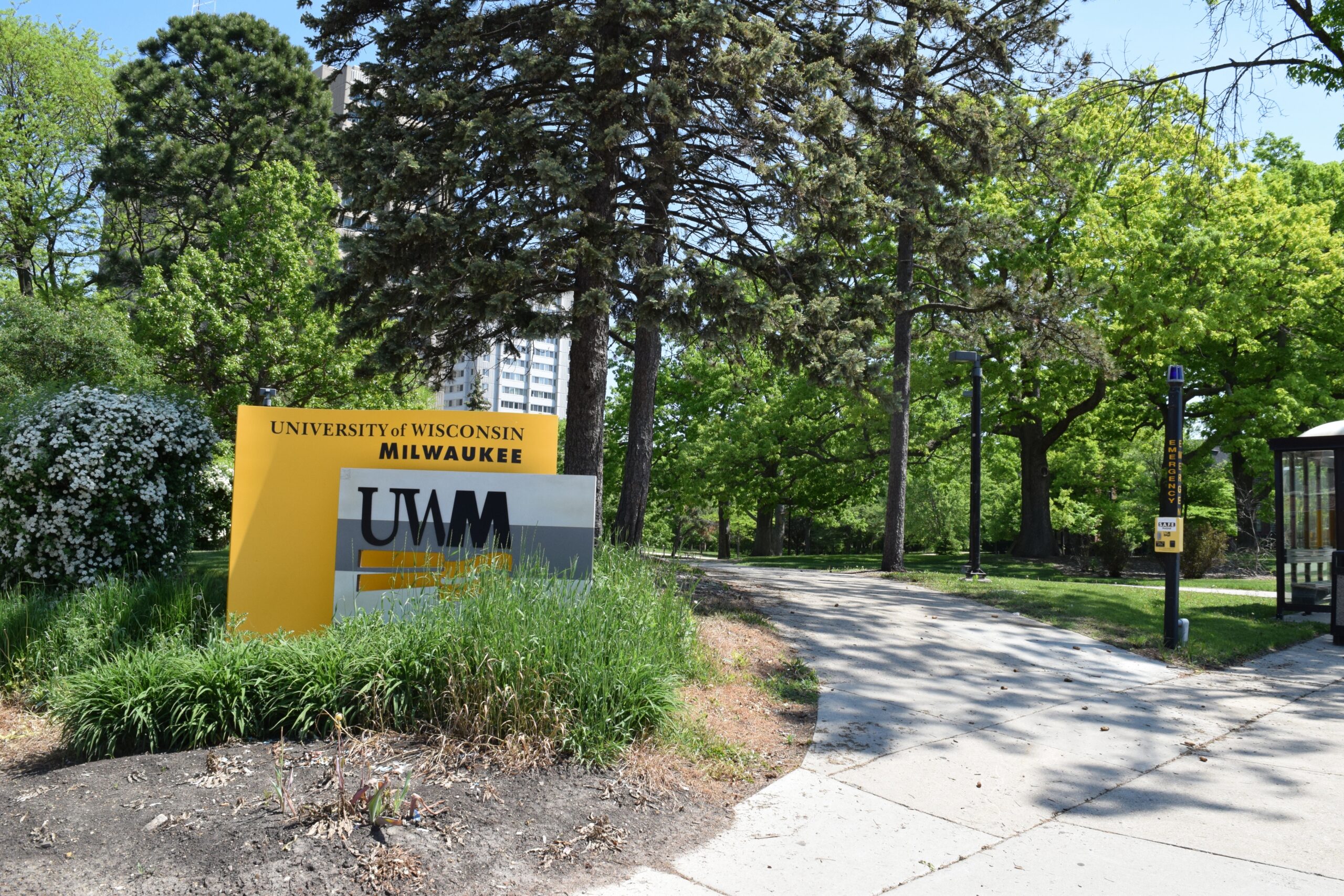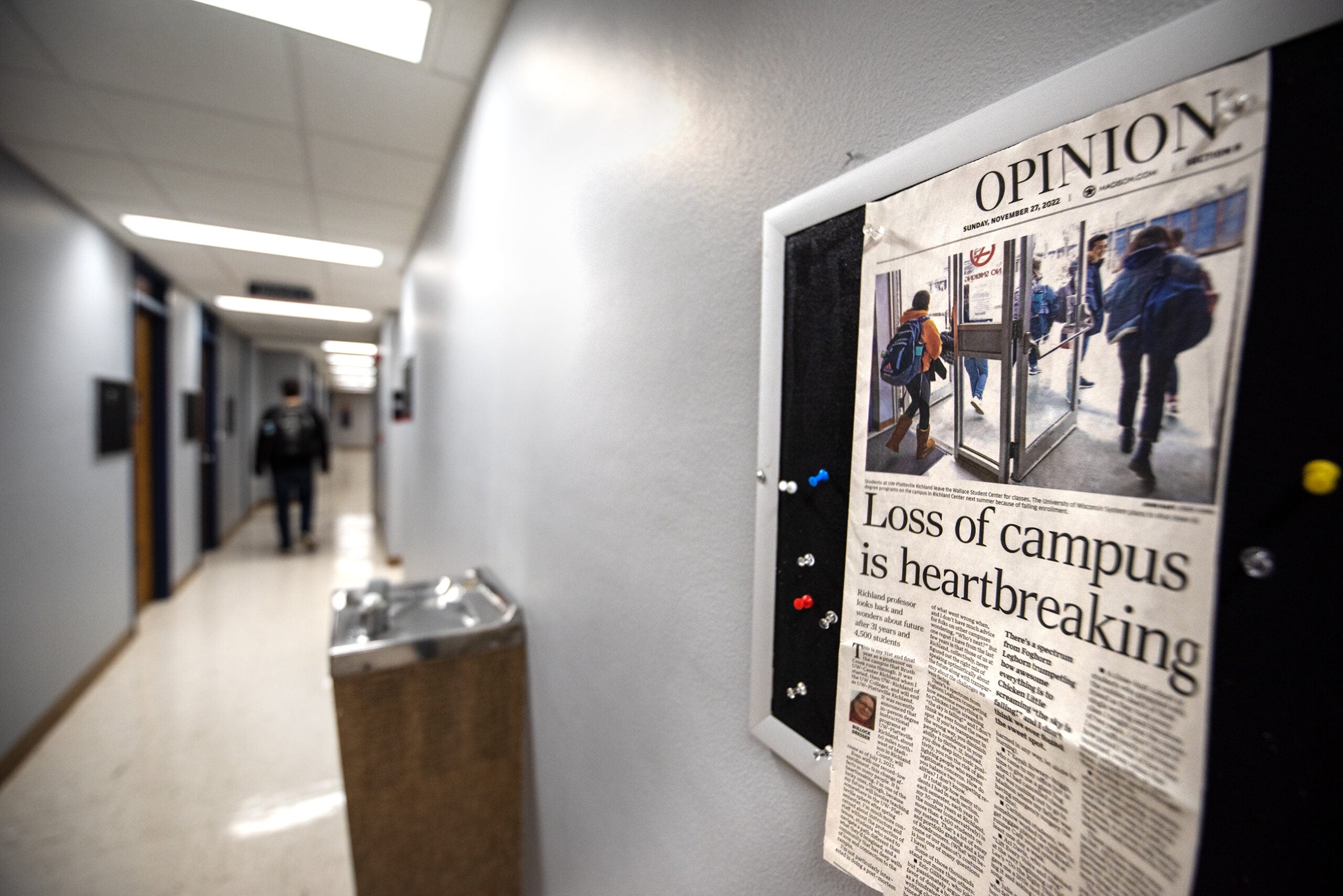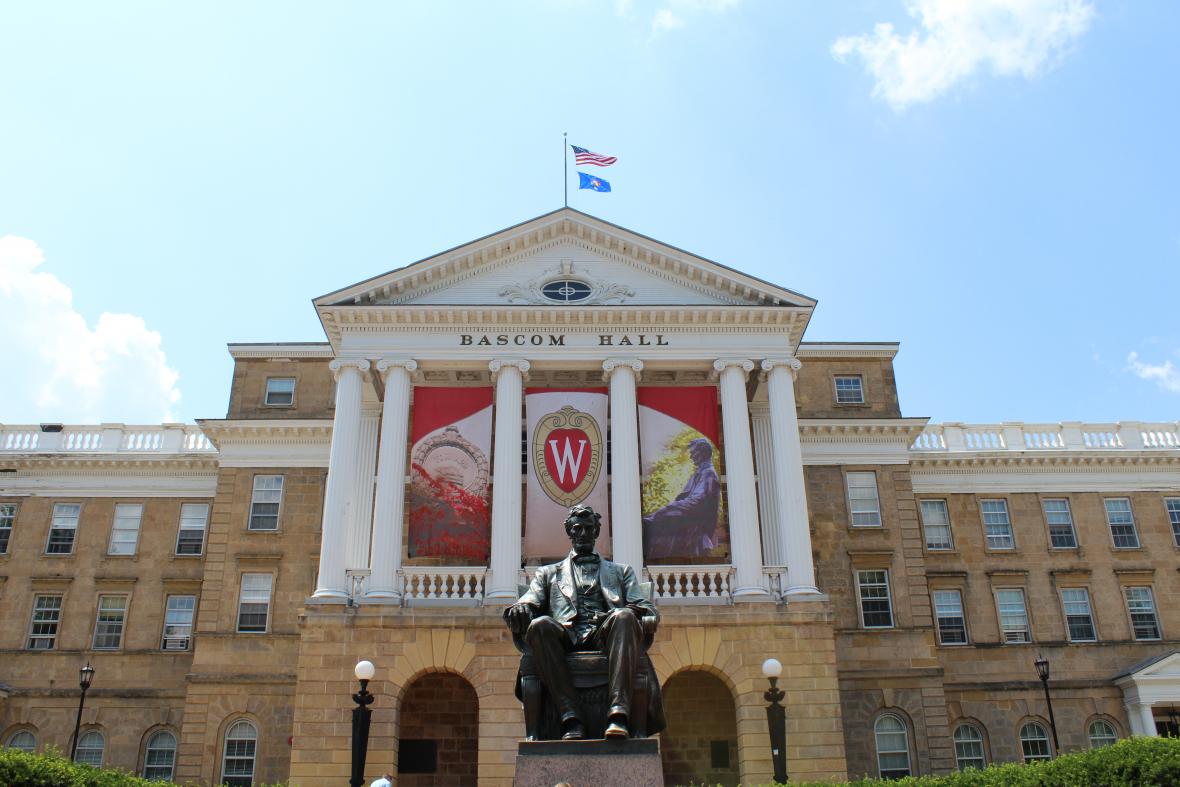Last week, Universities of Wisconsin regents voted to lay off 32 tenured faculty members at the University of Wisconsin-Milwaukee.
Across the nation, it’s somewhat unusual, but not unheard of for tenured faculty to be laid off.
In Wisconsin, however, the recent decision — to lay off UW faculty on a mass scale — was unprecedented. Thursday’s decision was the first time regents used a controversial 2016 policy to dismiss multiple faculty members.
News with a little more humanity
WPR’s “Wisconsin Today” newsletter keeps you connected to the state you love without feeling overwhelmed. No paywall. No agenda. No corporate filter.
UW-Milwaukee Chancellor Mark Mone has said the layoffs resulted from the difficult decision to eliminate the College of General Studies. That college allowed students to get an associate’s liberal arts degree at UW-Milwaukee’s Waukesha campus. The entire UW-Milwaukee at Waukesha campus is set to close in spring of 2025.
Mone cited financial pressures, including lagging enrollment and inadequate state aid.
Policy cited goes back to Walker administration
In 2015, Republican Gov. Scott Waker signed a budget that stripped tenure protections for public university professors from state law.
Shortly after, UW regents adopted a policy specifying that tenured professors could be fired if their program is eliminated.
UW regents cited that policy for the first time when they voted in 2021 lay off one professor at UW-Platteville. That’s after Platteville discontinued its early education program.
But Thursday’s vote will apply the policy on a scale that Wisconsin’s public university system hasn’t seen before, said Nicholas Fleisher, an associate professor at UW-Milwaukee, who is not among the professors being laid off.
“The tools that were put in place about 10 years ago under Scott Walker … caused a huge uproar at the time,” said Fleisher, who represents the interests of his colleagues as local chapter leader for the American Association of University Professors. “And everyone is just kind of waiting for, like, ‘When is the first time this is really going to happen?’ And now we’re seeing that.”
UW-Milwaukee’s Faculty Senate rejected the proposed layoffs in a symbolic vote, and Fleischer questioned whether the layoffs truly resulted from financial necessity.
“There’s real concern that not every avenue was explored to protect faculty and staff jobs,” he said. “And that the administration basically had it in mind that they wanted to shut down this facility. They saw a policy mechanism for doing that and everything else kind of was in service of that goal rather than really following their obligations to faculty.”
Before Wisconsin weakened its tenure protections, tenured faculty could only be fired for just cause or let go because of a campus-wide financial emergency. If a program was eliminated, tenured faculty had to be given the option to work in a different position.
In recent cases, some other universities have laid off tenured faculty
The concept of tenure goes back more than a century, said Tim Cain, a professor who studies higher education and academic freedom at the University of Georgia. It’s intended to protect faculty who pursue controversial research or express unpopular opinions.
But, he said, there’s a growing effort to weaken tenure through means including state-level legislation.
“We also are in a period in which there is a concerted attack on tenure coming out of conservative think tanks (and), in some states, coming out of the Republican Party,” he said.
And, since the 1970s, it’s become increasingly common for universities to cite financial reasons as a reason for booting tenured faculty, Cain said.
“It is somewhat unusual for tenured faculty to be laid off, although it is more usual than people think,” he said.
Citing a budget deficit, West Virginia State University, that state’s flagship public university, gave layoff notices to tenured faculty last year.
And, just last month, Western Illinois University, a regional public university, announced layoffs, including layoffs of tenured faculty, amid a financial crisis.
Across the country, Cain said universities are facing financial headwinds, including limited state aid, fewer students enrolling in college and expiring federal pandemic aid.
In many cases, Cain said, higher education administrators are genuine when they cite financial reasons for eliminating faculty positions.
“At the same time, the history shows us that if we look back over the past 30 years, administrations also use claims of financial challenges to remove faculty for other reasons, or they overstate what the financial challenges are to save a little money in one place and use it somewhere else,” he said.
Wisconsin Public Radio, © Copyright 2025, Board of Regents of the University of Wisconsin System and Wisconsin Educational Communications Board.







